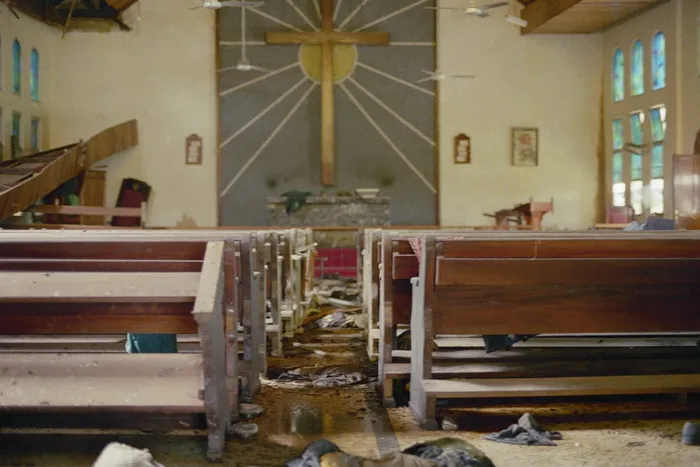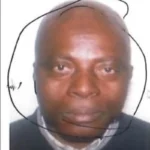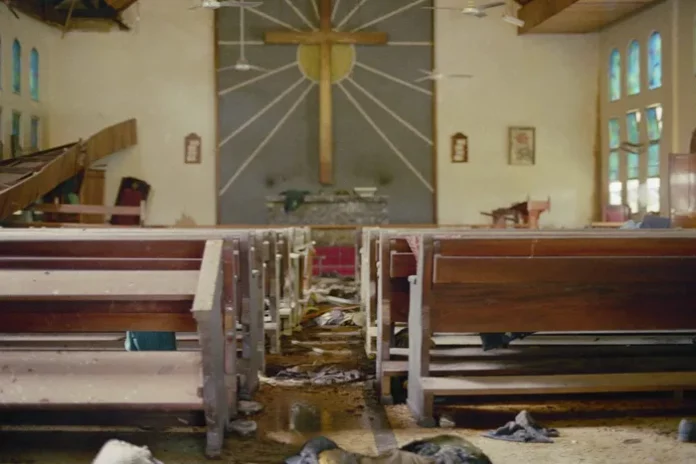Liberians for decades. A U.S. court just gave his victims a shot at justice.
Moses Thomas, of Sharon Hill, helped lead Liberian soldiers in the 1990 slaughter at a Lutheran church in Monrovia. A federal court just ruled against him in a civil case.

In 1990, soldiers loyal to then-Liberian President Samuel Doe slaughtered more than 600 civilians seeking sanctuary in a Monrovian church in what became one of the single worst atrocities in a bloody civil war that would see dozens more before its end.
Mothers saw their children shot down among the pews. Men watched in horror as their brothers were hacked to death by machete-wielding soldiers. Bodies filled the nave, left to rot in the aftermath until volunteers eventually buried the corpses two months later.
And like many of the other war crimes committed during the conflict that ravaged the West African nation for more than 14 years, no one was held accountable.
But in an unusual ruling this week, a federal court in Philadelphia found a Delaware County man — who once served as a commander in the Liberian military and Doe’s personal guard — civilly liable for leading the attack.
Ruling in a case brought by four Liberian survivors of what has since become known as the St. Peter Lutheran Church Massacre, U.S. District Judge Petrese B. Tucker concluded that the plaintiffs should be allowed to collect damages from Moses Thomas, 67, who had been living in Sharon Hill since fleeing Liberia in 2000.
“He is directly liable for the wrongful acts during the massacre,” she wrote. “He intentionally directed an attack on a building dedicated to religion, personally directed an attack on civilians and committed the crime against humanity of persecution.”

Moses ThomasCourtesy of Center for Justice &
The court has not yet determined how much it will order Thomas to pay. And it remains unclear whether, even once that is settled, the plaintiffs will be able to collect any damages from him.
(A year after the suit was filed, Thomas, who has denied any involvement in the massacre, closed the West African restaurant he helped run in Philadelphia’s Elmwood section, Klade’s, and returned to his home country.)
Still, survivors of the attack and their advocates hailed the ruling as a victory.
“The decision finds conclusive evidence of government responsibility for the massacre, as well as Thomas’ individual role in it,” said Hassan Bility, director of the Monrovia-based nonprofit Global Justice Research Project. “Now that Thomas is back in Liberia, the Liberian government must investigate and prosecute him for this crime, and any others.”
Prospects for that outcome, however, remain dim. To date, the Liberian government has yet to hold anyone responsible for the dozens of documented atrocities committed on all sides of the nation’s first civil war — a multifaction ethnic conflict that left hundreds of thousands of civilians dead and a generation of survivors clamoring for justice.
In that absence, U.S. authorities have led the charge in recent years to bring Liberian war criminals to justice — particularly in Philadelphia, where thousands of refugees fleeing the conflict were relocated in the ‘90s and 2000s.










